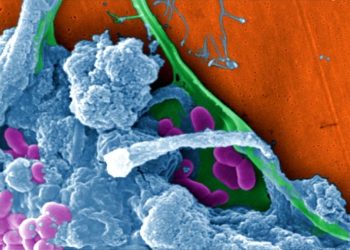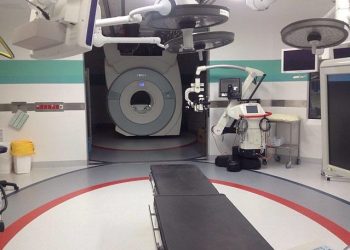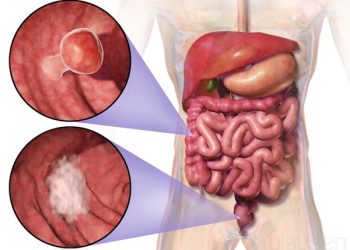Why Dostarlimab Being Hailed As A Possible Answer To Cancer Cure?
The drug Dostarlimab was in the news recently as a possible cure to cancer. This was because Dr. Luis A. Diaz Jr. of Memorial Sloan Kettering Cancer Center, in a paper published in the New England Journal of Medicine revealed that a small group of rectal cancer patients were administered dostarlimab, an anti-PD-1 monoclonal antibody, every 3 weeks for 6 months. According to the paper, the results were astonishing. The cancer vanished in every single patient, undetectable by physical exam, endoscopy, PET scans or M.R.I. scans.
Even up to 25 months later, no cases of progression or recurrence have been reported, per a statement.
Dr. Luis A. Diaz said “I believe this is the first time this has happened in the history of cancer.”
(The trial was sponsored by the drug company GlaxoSmithKline.)
As per New York Times report:
These rectal cancer patients had faced grueling treatments — chemotherapy, radiation and, most likely, life-altering surgery that could result in bowel, urinary and sexual dysfunction.
Some would need colostomy bags.
They entered the study thinking that, when it was over, they would have to undergo those procedures because no one really expected their tumors to disappear.
But they got a surprise: No further treatment was necessary.
“There were a lot of happy tears,” said Dr. Andrea Cercek, an oncologist at Memorial Sloan Kettering Cancer Center and a co-author of the paper, which was presented at the annual meeting of the American Society of Clinical Oncology.
What Is Dostarlimab?
Dostarlimab is a class of drugs called checkpoint inhibitors used to provide immunotherapy to cancer patients. These drugs don’t kill cancer directly, they have the capacity to remove the camouflage and unmask cancer cells so that the body’s immune system can destroy them. The trial results are striking as every patient involved in this trial showed complete remission.
Is The Excitement Justified Considering That The Data Is From Only 18 Patients?
The drug was finally used in 12 patients, but what is remarkable is that all of them had the same and complete systemic reaction. The main criteria for choosing the patients was that they should have colorectal cancer in an early stage. They are now in remission and while the results have been published with a very short term follow up, it’s possible long-term results for these patients would be good. Results for trials change when there is longer follow-up, so it remains to be seen how the patients fare.
However, this is thrilling for doctors and researchers. These patients didn’t have to undergo organ-removal surgery or suffer the toxic side-effects of chemotherapy and radiotherapy.
Here is a video where you can hear from the patients about the treatment they received. This approach helps the patients’ own immune systems recognize and attack their tumors, which contain a vulnerable genetic mutation.
Can This Type Of Immunotherapy Emerge As A Treatment For All Cancer Patients?
There are many types of immunotherapy available at the moment; they could be passive or active immunotherapies, there are vaccinations using dendritic cells. There is CAR T cell therapy in which the T cells (a type of white blood cell) are modified to find and attack cancer cells in the body. A few years back, immunologists James Allen from the US and Tasuku Hong from Japan won the Nobel Prize for their work on checkpoint inhibitors.
Immunotherapy has shown great results for some forms of cancers and hasn’t worked at all for many others. For instance, immunotherapy has increased the survival rate of patients with metastatic melanoma (skin cancer) and there are encouraging results in treatment of renal cancer and a type of lung cancer.
However, these results are seen in a small category of patients. Only 30% of the metastatic melanoma patients have an increased lifespan of decades, but, the outcome is still grim for the remaining patients. It cannot be advised for all patients at the moment.
Have We Found A Way To Treat Cancer Easily?
As of now, that looks to be a far-fetched statement. This is one, small clinical trial. It is better to be cautious and check if the same result is persistent in multiple trials before it is a part of the treatment period. At the moment, no doctor should change the course of treatment of patients with colorectal cancer used on this trial results.
Dr Hanna K. Sanoff, M.D., M.P.H, in an editorial in The New England Journal Of Medicine sounded a note of caution saying, ‘the trial was very small, and it’s too soon to know whether the patients will stay in remission. Even patients with a complete response to radiation and chemotherapy can see cancer regrowth—about 20 to 30 percent of patients when the cancer is managed non-operatively.’
Image courtesy: https://commons.wikimedia.org/
Source: 1. https://www.nytimes.com/2022/06/05/health/rectal-cancer-checkpoint-inhibitor.html
2. http://www.nejm.org/doi/full/10.1056/NEJMoa2201445
3. https://www.smithsonianmag.com/smart-news/small-cancer-trial-resulted-in-complete-remission-for-all-participants-180980221/

















